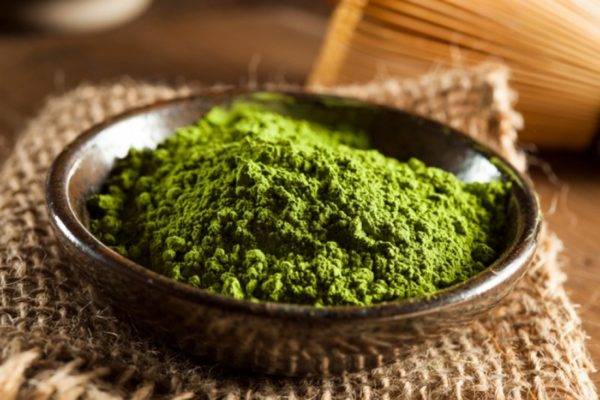It’s not very common, but sometimes kratom will suddenly not produce the effects it once did. A person takes their normal dose amount, but almost nothing happens. Even hours later, while drinking water, and staying active — it’s practically like the kratom was not taken.
It’s not very common, but sometimes kratom will suddenly not produce the effects it once did. A person takes their normal dose amount, but almost nothing happens. Even hours later, drinking water, and staying active — it’s practically like the kratom was not taken.
It’s tempting to think about just increasing the dose. “Take more” makes sense, but it’s not the solution at all. Taking less is the real answer. First, though, let’s look at why kratom might stop working for you.
Why does this abrupt halt happen? What causes your body to, all of a sudden, with no warning or lead-up to it, not respond like it used to when you take kratom?
Just like the various factors involved in how a kratom product can affect one person in a certain way, but another person has an opposite reaction to the same product — this unexpected and disappointing cessation of effects can be attributed to many different things.
Learn more about why kratom can have varying effects from one person to another person here:
For example, if for a long time, you’ve been taking a bit too much kratom, or taking it too often, this can cause your body to experience an overload.
Perhaps you’ve noticed the same thing when drinking more and more coffee starts to paradoxically make you feel sleepy, or when you were partying so hard, you “drank yourself sober”. Cannabis uses tell of times when they had an abundance of marihuana, so used way more than normal. Rather quickly, they “smoked themselves straight”, doing too much too fast. It’s like the body can’t keep up with it anymore, so it goes dormant regarding reacting to the alkaloids of kratom.
In this type of situation, simply reducing your dose amount and frequency can get you back to normal soon. Instead of taking 8 grams, 3 times a day, try taking 4 grams, once a day. You will likely discover that “less is better” when it comes to kratom. Taking too much kratom, or taking it too frequently, can cause a person to feel sluggish. Getting back to a lower dose can cause your body to re-adjust to the kratom alkaloids.
Another good strategy is to routinely skip days. Take kratom for 3 days, skip 2 days, and so on. You might think this is hard, but as you take a bit less kratom, your body is enabled to make it stretch to get by a day without taking it.
Or go with the flow. Let your body take a break from kratom. Quit for a whole month if possible. Even a week or so of abstaining from kratom can enable your body to do a “reset”, to re-familiarize itself with the kratom alkaloids.
It’s a good idea to not replace kratom, during this period of fasting from it, with opioids or other Big Pharma medicines, unless you absolutely must take something. If you do use opioids, when you return to using kratom, your body will need to adjust to reacting to kratom again, so it may take a while for kratom to work as effectively as before.
Try switching your kratom types. Don’t take one kind of kratom for months at a time. Vary what you use. Maybe take red maeng da one day, then green elephant, then bunny blend, then red borneo, then royal bentuangie. By changing your kratom types, you avoid building a tolerance to a specific alkaloid profile.
If you’ve been taking kratom in capsules, try doing the toss and wash technique.
Be sure to take kratom on an empty
stomach for faster delivery of effects. You might also try using
potentiators to boost the effects of kratom.
See this article
for more information on kratom potentiators:
The thing to keep in mind is that this problem is probably not permanent. Kratom has only temporarily stopped working for you. By following the advice given here, you should be back to normal again in no time at all.
It’s not very common, but sometimes kratom will suddenly not produce the effects it once did. A person takes their normal dose amount, but almost nothing happens. Even hours later, drinking water, and staying active — it’s practically like the kratom was not taken.
It’s tempting to think about just increasing the dose. “Take more” makes sense, but it’s not the solution at all. Taking less is the real answer. First, though, let’s look at why kratom might stop working for you.
Why does this abrupt halt happen? What causes your body to, all of a sudden, with no warning or lead-up to it, not respond like it used to when you take kratom?
Just like the various factors involved in how a kratom product can affect one person in a certain way, but another person has an opposite reaction to the same product — this unexpected and disappointing cessation of effects can be attributed to many different things.
For example, if for a long time, you’ve been taking a bit too much kratom, or taking it too often, this can cause your body to experience an overload.
Perhaps you’ve noticed the same thing when drinking more and more coffee starts to paradoxically make you feel sleepy, or when you were partying so hard, you “drank yourself sober”. Cannabis uses tell of times when they had an abundance of marihuana, so used way more than normal. Rather quickly, they “smoked themselves straight”, doing too much too fast. It’s like the body can’t keep up with it anymore, so it goes dormant regarding reacting to the alkaloids of kratom.
In this type of situation, simply reducing your dose amount and frequency can get you back to normal soon. Instead of taking 8 grams, 3 times a day, try taking 4 grams, once a day. You will likely discover that “less is better” when it comes to kratom. Taking too much kratom, or taking it too frequently, can cause a person to feel sluggish. Getting back to a lower dose can cause your body to re-adjust to the kratom alkaloids.
Another good strategy is to routinely skip days. Take kratom for 3 days, skip 2 days, and so on. You might think this is hard, but as you take a bit less kratom, your body is enabled to make it stretch to get by a day without taking it.
Or go with the flow. Let your body take a break from kratom. Quit for a whole month if possible. Even a week or so of abstaining from kratom can enable your body to do a “reset”, to re-familiarize itself with the kratom alkaloids.
It’s a good idea to not replace kratom, during this period of fasting from it, with opioids or other Big Pharma medicines, unless you absolutely must take something. If you do use opioids, when you return to using kratom, your body will need to adjust to reacting to kratom again, so it may take a while for kratom to work as effectively as before.
Try switching your kratom types. Don’t take one kind of kratom for months at a time. Vary what you use. Maybe take red maeng da one day, then green elephant, then bunny blend, then red borneo, then royal bentuangie. By changing your kratom types, you avoid building a tolerance to a specific alkaloid profile.
If you’ve been taking kratom in capsules, try doing the toss and wash technique.














